Should nutrition supplements be eaten? How to eat it? This problem has been a focus of public concern for many years and is also a question that medical staff are often asked. There has been a lack of complete research on the benefits and disadvanta...
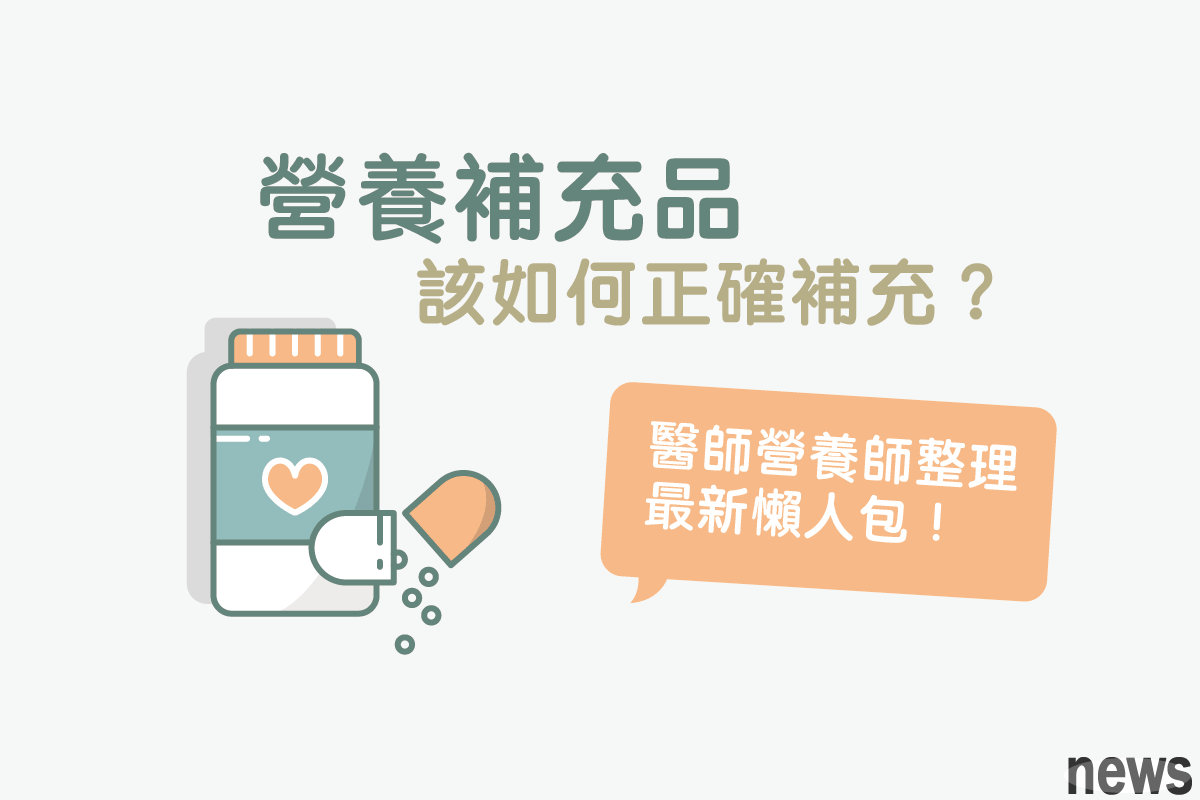
Should nutrition supplements be eaten? How to eat it? This problem has been a focus of public concern for many years and is also a question that medical staff are often asked. There has been a lack of complete research on the benefits and disadvantages of nutritional supplements in the past. The main reason is the form of research, the number of samples, the time of observation, etc., which makes it difficult to determine whether it is effective after taking it?
But this article was published in the latest issue of JAMA journal published on March 6, 2018: Nutritional supplement suggestions that medical staff must know. This study is very helpful for medical staff to respond to relevant issues of the broad masses of the public, so the team's doctors and nutritionists have compiled this study together, hoping to help medical staff and the public.
{9 What do you say about the latest JAMA research?Let me first tell you the final point of this article, that is, except that certain ethnic groups often recommend supplementing specific nutrients, taking supplements for nutrients has no benefit to non-nutritional deficiency.
The general ethnic group's nutritional supplements are not beneficial means that in addition to the lack of certain nutrients (such as vitamin C deficiency can cause dental bleeding or even aggravation), in this case, eating more nutrient supplements and healthy foods is not beneficial or even harmful in other situations.
As soon as this article was published, it was said to be a shocking shot for the industry (many products are almost unnecessary to sell). Because nutrition supplements are worth about US$30 billion in the United States, there are more than 90,000 products on the market. It is no different in Taiwan. According to the 2017 statistical report, the production value of Taiwan's nutritional health foods in 2013 also reached the highest NT$14.06 billion in recent years. According to the US Statistical Survey, about half (52%) of American adults use at least one health food, and 10% use more than four types at the same time. The most common supplements are vitamins and minerals, which are used by 48% and 39% of people, usually to maintain health and prevent illness.
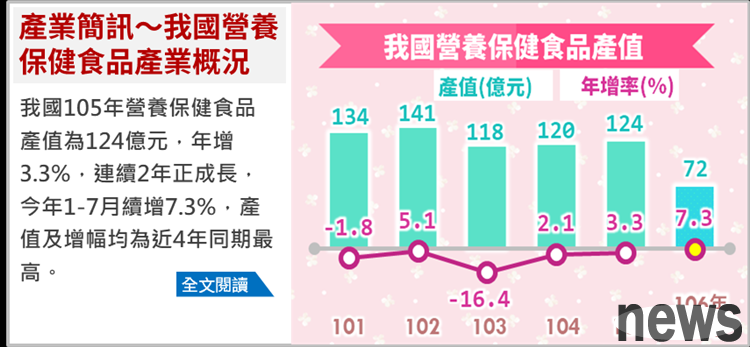
Although people are enthusiastic about nutrition supplements, most of the trials have not found any benefit to chronic diseases that are irrelevant to nutritional deficiency. Instead, some studies have shown that supplementing trace nutrients that exceed the recommended intake (RDA), such as high doses of β huscarin, leaf acid, vitamin E or selenium, can actually be harmful to health, including increased mortality, cancer and hemorrhagic media. If you have any questions about the recommended intake volume over replenishment, you can refer to this article. In addition to pointing out medical staff to recommend patients that supplements cannot replace healthy and balanced diets, medical staff should also tell patients (or friends who are seeing them) that trace nutrients in food are usually better absorbed in the human body and have fewer potential side effects. Healthy diets provide a range of nutrient-important substances in a highly concentrated form with biologically optimal proportions. In fact, studies have shown that a good diet pattern is more helpful to health compared to single-invested nutrients. In this study, the following suggestions are also proposed that there are really special supplementary suggestions.
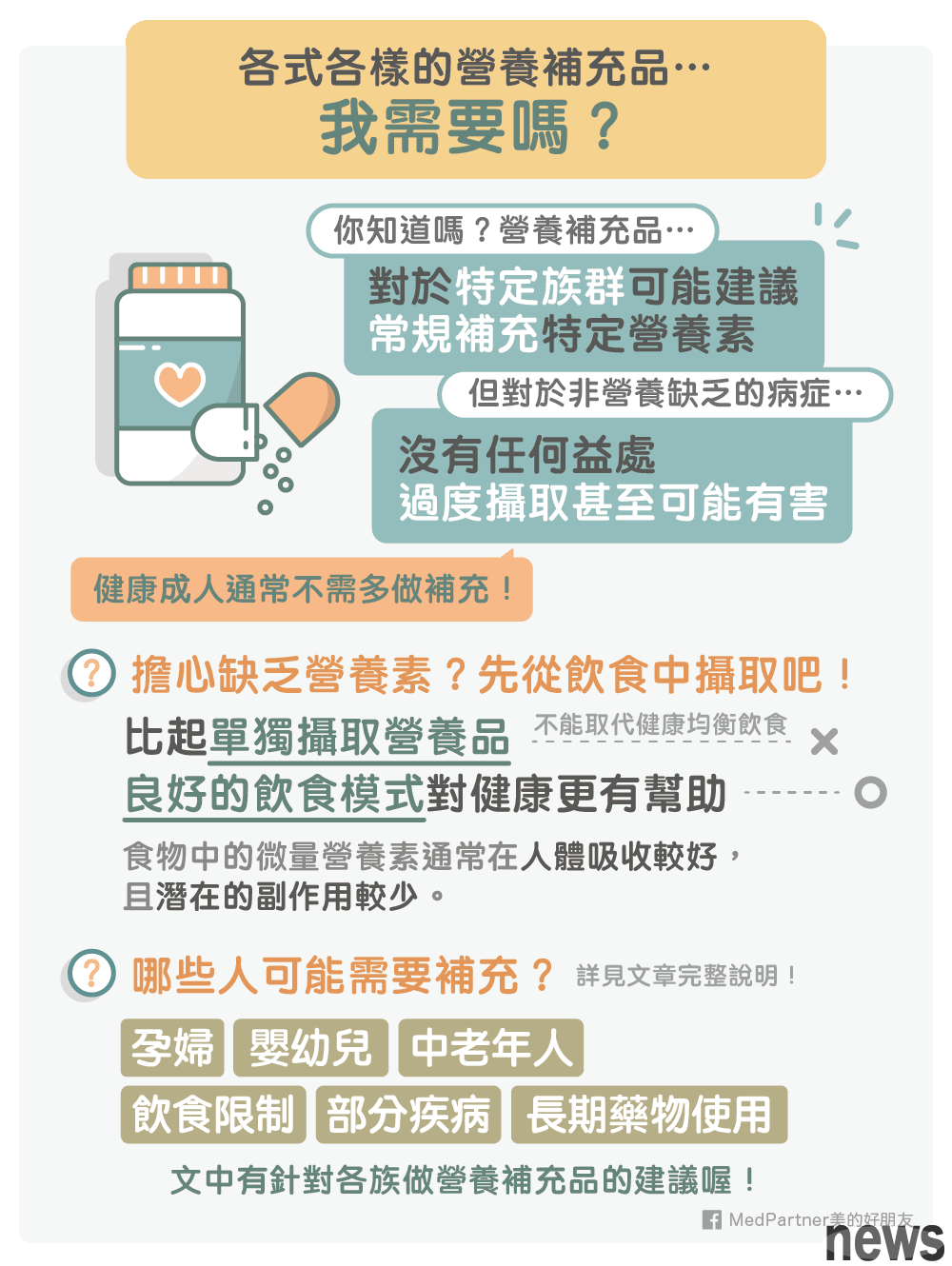
Although routine supplementary nutrients are not recommended for ordinary people, supplementation may be required for high-risk groups that may not be able to meet nutritional needs by eating alone. Listed in detail below:
Minium quality and vitamin supplementation focus
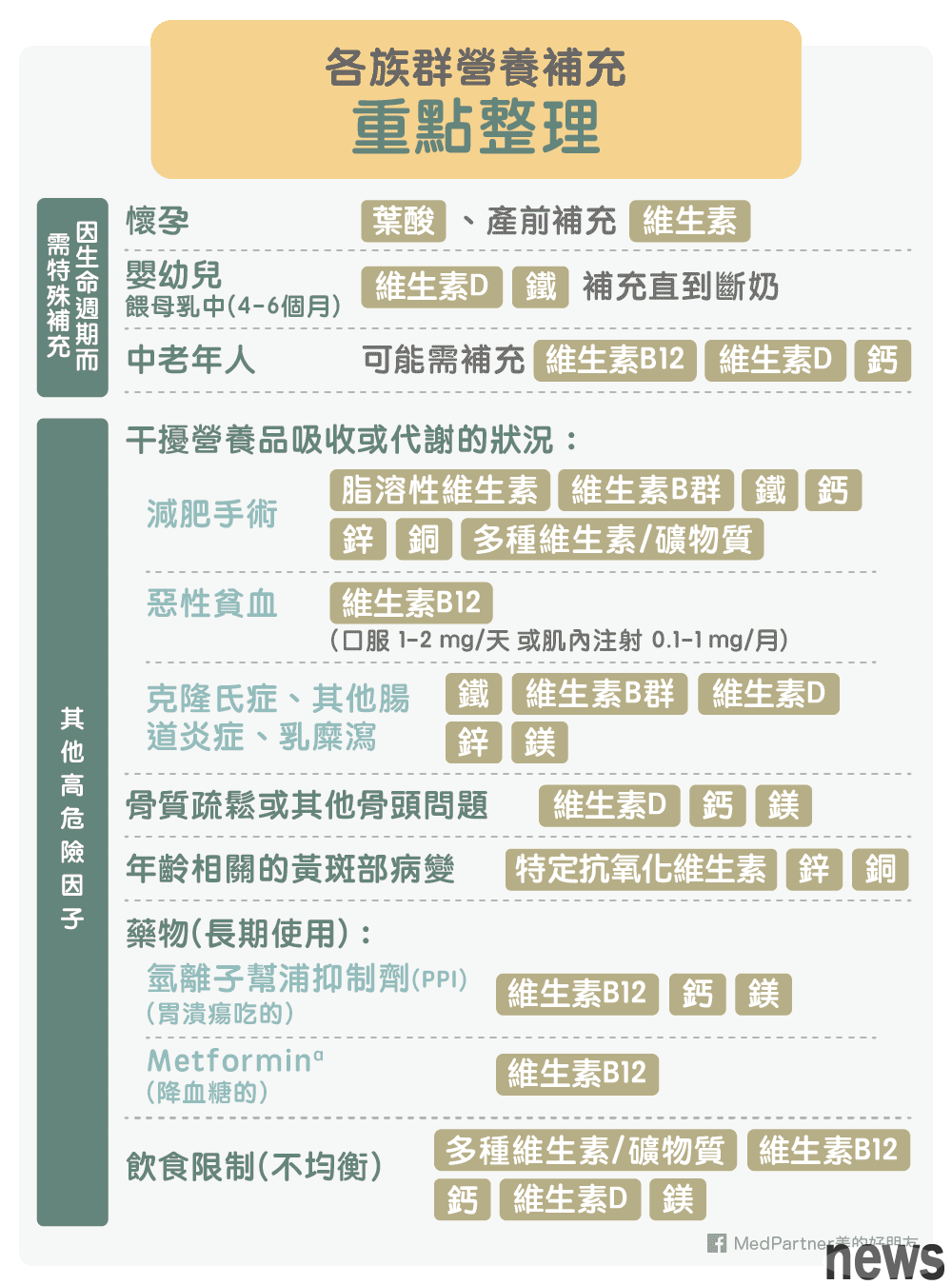
Suggestions for nutritional supplements for pregnant women
Certificate shows that pregnant women or early pregnancy should take enough leaf acid (0.4-0.8 mg/day) to prevent neurologic defects. Leaf acid is a small number of nutrients that are more easily absorbed by humans than natural dietary forms (leaf acid salt). The supplementation of various vitamin minerals before delivery can provide leaf acid as well as vitamin D and many other essential trace nutrients during pregnancy. Pregnant women should also recommend eating iron-rich diets. It is necessary to be cautious when starting iron-deficient pregnant women to prevent and treat iron-deficient blood. In addition, there is no clear evidence of the balance between the benefits and risks of common iron replenishment during pregnancy. Do pregnant women need to supplement their calcium? Replenishing calcification during pregnancy can reduce the risk of pregnancy hypertension and pregnancy toxemia, but the actual improvement of risk still requires large-scale trial certification. The benefits and risks of using high doses of vitamin D during pregnancy also need further research. For nutritional supplement recommendations for pregnant women, the American Society of Women has developed a useful guide based on the current best evidence
Nutritional supplement recommendations for babies with children
US Society of Women of Women of Women of Women of Women of Women of Women of Women of Women in the United States of America, it is recommended that babies without breast milk should
1. Replenish vitamin D (400 international units/day) after birth until milk is cut off (turned into vitamin D strengthens whole milk (≥ 1L / )2. Replenishing iron (1 mg/kg/day), from 4 months until after 6 months, baby who receives enhanced formulas containing vitamin D and iron usually does not require additional supplementation. But all children should check for iron and iron-deficient blood within 1 year. Healthy children with balanced diets do not need additional vitamins/mine supplements, but they should avoid taking more than the recommended amount of daily nutritional intake. In recent years, supplementation of ω-3 fatty acids has been considered a prudent factor that can reduce autopsy or dysfunction in children, but the evidence for large random trials is still insufficient, so don't try it easily.
Nutritional supplements for middle-aged and elderly people: Adults 50 years of age and older may not be able to fully absorb vitamin B12 in their natural protein form, so it is recommended to use strengthening foods or supplements synthesized B12 to achieve the recommended daily nutritional supplement (2.4% 26mu; g/day) and higher doses are required for patients with vicious blood.
Viotamin D
is currently recommended for bone health (from food or supplements) for adults under 70 to 600IU/day; for adults over 70 to 800IU/day. Some professional organizations recommend 1000 to 2000 IU/day, but there has been a debate on whether the recommended amount of feeding more than daily nutrients can provide additional benefits. The large-scale random trial currently underway should help clear this question as quickly as possible.calcium
51 to 70 men currently recommend 1000 mg/day, 1200 mg/day for women 51 to 70 and over 70. As calcium supplements may increase the risk of kidney stones and cardiovascular disease, patients should achieve this recommended amount mainly by eating calcium-rich diets and taking calcium supplements only if they need to meet the recommended amount (usually, supplements usually only require about 500 mg/day) Recent meta-analysis It is mentioned that supplementing moderate doses of calcium (is not recommended for general healthy adults. A large-scale trial of men found that supplementing multiple nutrients can reduce cancer risk, but requires larger-scale studies and included women in the study to prove it, and the basic nutritional status of this group of people must be analyzed. A large-scale ongoing 4 The annual test is expected to show whether a variety of vitamins and mineral supplements are beneficial for the prevention of cancer and cardiovascular diseases.
What are the nutrients that are prone to lack in daily diet?In addition to the unbalanced diet mentioned in the article, we supplement each nutrient here. Although eating more nutrients is not beneficial, if you touch it When it is lacking, nutritional supplements still have their own uses. If you find that you don’t often eat the main source of this nutrient, or can you try to get it from your diet first. But if it’s really impossible, you can consider using nutritional supplements. For example, if your dad doesn’t like eating whole grains and only eats semen white rice, he may have a vitamin B2 lack, so supplementing B2 or group B may be an alternative (but it is recommended to advocate that he eat brown rice because natural ones are good).
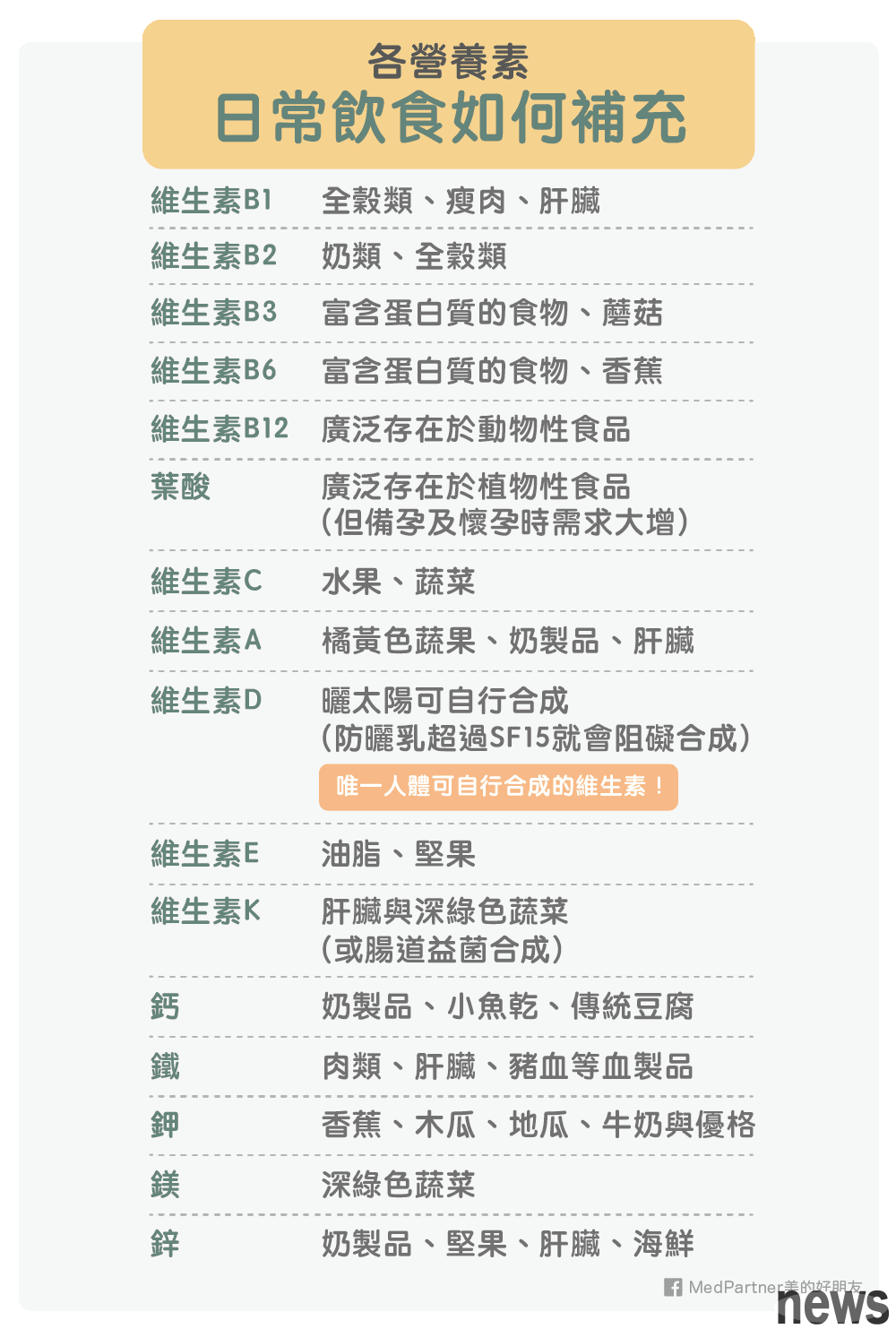
JAMA in this study wanted to give importance to medical staff
When viewing patients' drugs, clinical doctors should ask whether other nutrients (and plants or other diets) are used to explain potential interactions. For example, vitamin K supplementation reduces the effect of anticoagulants such as warfarin, vitamin B7 affects the accuracy of myocardial myocardin and other test data. In addition, in the United States, they will recommend some interactive websites that are convenient for the public to query and use, such as drugs.com, WebMD or pharmacy websites, which can be used for free.
Clinical doctors and patients should also know that the U.S. Food and Drug Administration (FDA) does not authorize reviewing the safety and effectiveness of dietary supplements before sales. Although nutrient supplement manufacturers must abide by the ” GMP “ (Good Manufacturing Practice), monitoring is not ideal. Therefore, it is possible to expect the clinical doctor to establish a product that requires a prescription label, or to suggest that the patient considers a supplement that has been certified by (ConsumerLab.com, NSF International or UL) (the dosage of the active ingredient is marked and does not contain microorganisms, heavy metals or other toxins). Clinical doctors (or patients) should report suspected adverse reactions related to supplements to the Food and Drug Administration via MedWatch (a website that similar adverse reactions are reported). The dietary supplement website of the National Institute of Health Research is a source that can help doctors and the public understand a lot of trace nutrients and other dietary supplements. The document also hopes that medical staff will promote the correct use of nutrients to the public, and these efforts will improve the health of the public.
The local research related to us in Taiwan is not very small, and the relevant information of the National People's Health Agency and other government units and medical institutions is still insufficient. This is a joint effort of many medical practitioners. When many people hear folk remedies or take nutritional supplements, can we provide relatively correct and credible information to our fellow citizens? If we can do better together, it will definitely help many people in need. If you are also a dedicated medical professional who is committed to the correct medical knowledge promotion, please send us a message at info@medpartner.club to work with us.
Reference1.Vitamin and Mineral Supplements: What Clinicians Need to Know.
2.Manson JE, Bassuk SS.
3.JAMA. 2018 Feb 5. doi: 10.1001/jama.2017.21012. [Epub ahead of print] No abstract available.
4.PMID: 29404568
This article is authorized to be reprinted by "MedPartner Beautiful Friends", and the original article is published here